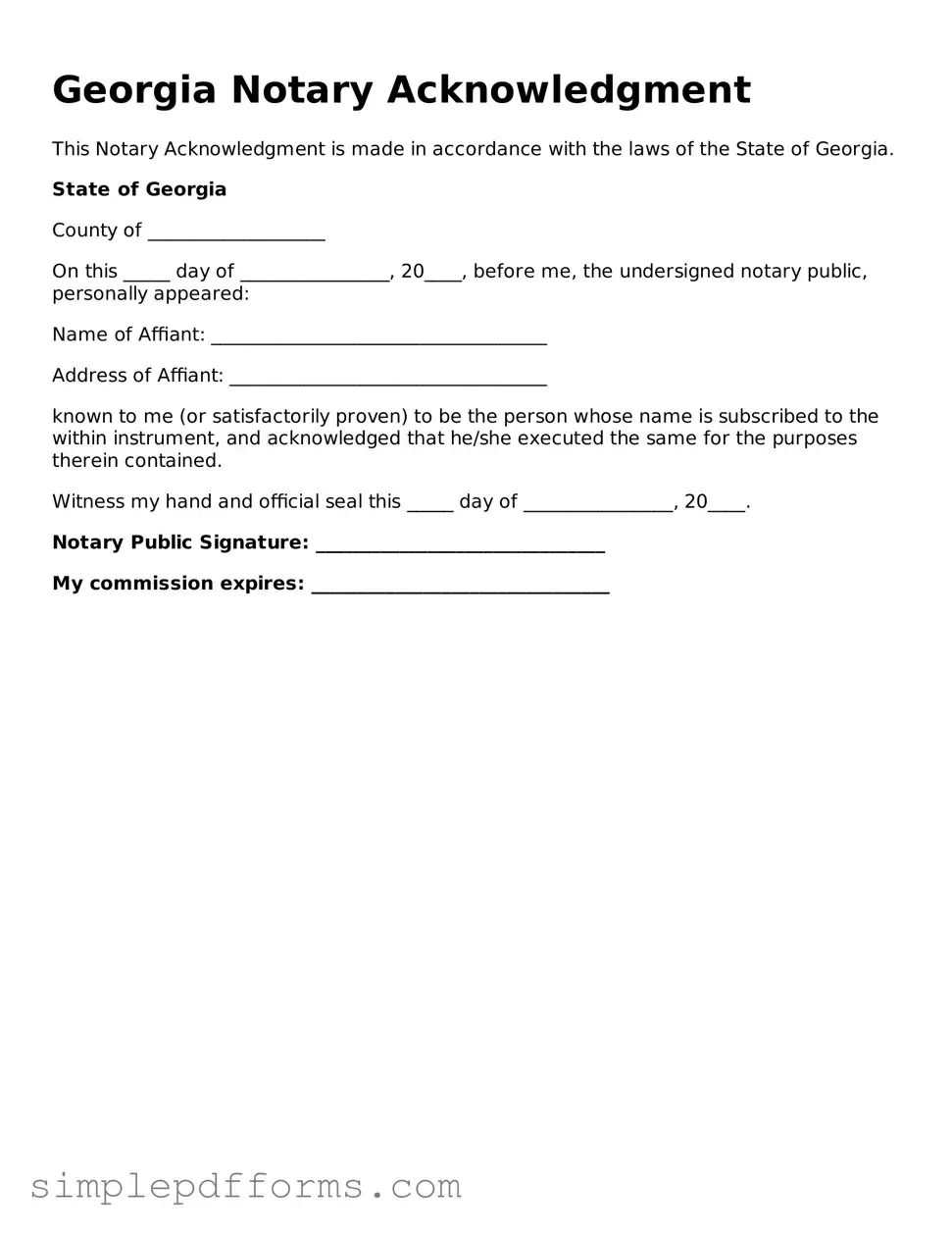Attorney-Verified Notary Acknowledgement Document for Georgia State
The Georgia Notary Acknowledgement form is a legal document that verifies a person's signature on a document, ensuring that the signer is who they claim to be. This form is essential for various transactions, providing a layer of protection and authenticity. Understanding its purpose and proper use can help you navigate legal processes with confidence.
Open Notary Acknowledgement Editor Now

Attorney-Verified Notary Acknowledgement Document for Georgia State
Open Notary Acknowledgement Editor Now

Open Notary Acknowledgement Editor Now
or
Get Notary Acknowledgement PDF Form
Your form is waiting for completion
Complete Notary Acknowledgement online in minutes with ease.